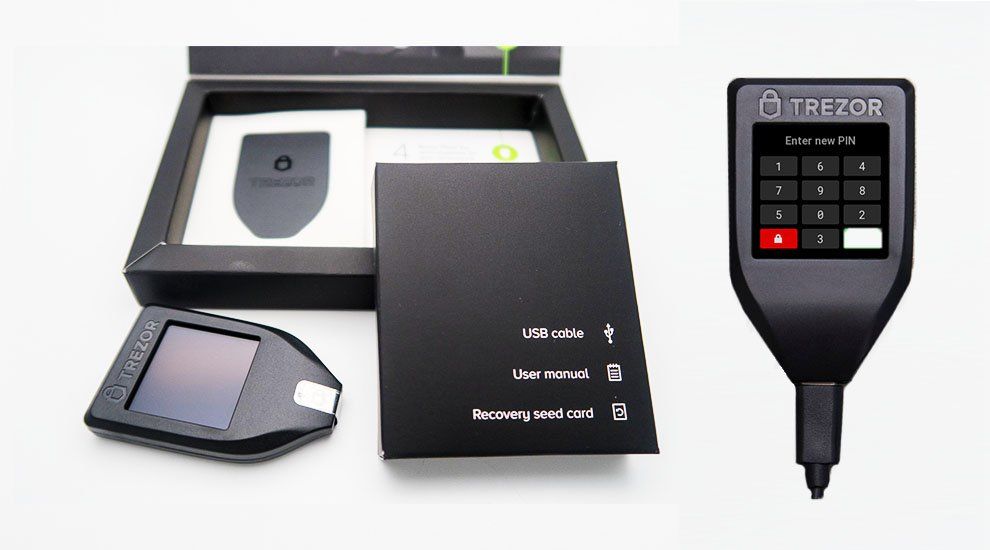Definition:
"Cold storage" refers to a secure way of storing cryptocurrencies offline.
Cold storage is a mechanism used in the protection of digital assets from potential threats that exist on the internet, such as hacking and other cybersecurity vulnerabilities.
Different Types of Cold Storage
In the context of cryptocurrencies, "cold storage" essentially involves moving the cryptographic keys necessary to access and transact digital currencies away from internet-connected systems.
This can be done in several ways:
- Paper Wallets: This involves printing out the private keys of the cryptocurrency onto a piece of paper and storing it in a secure location.
- Hardware Wallets: These are physical devices that securely store the user's private keys. These devices are designed to make transactions easy without the internet and are immune to virus attacks.
- Metal Wallets: Similar to paper wallets but made of metal to resist physical damage like fire, water, or wear and tear over time.
- Air-gapped (Disconnected) Computers: This involves using a computer or a device that has never been and will never be connected to the internet to generate and store private keys.

Paper Wallet
A paper wallet is a type of cold storage for cryptocurrencies, which essentially means storing digital assets in a way that is not connected to the internet. It involves printing out your private and public keys (in the form of QR codes for ease of use) onto a piece of paper.
If you want to create QR code now for your keys, you can do so easily
The private key allows you to access and spend the cryptocurrency stored at your public address, while the public key (or public address) is the location where you receive funds. As such, the paper wallet must be stored securely to prevent theft or loss.
Using a paper wallet can provide a high level of security, as it is completely offline (and thus immune to hacking or other digital threats). However, it also requires careful handling: if you lose the paper wallet, or if it's damaged or destroyed (in a fire, for example), you could lose access to your cryptocurrencies permanently.
Also, when you want to spend or transfer your cryptocurrencies, you'll need to import the private key into a software wallet to create the transaction, after which you should create a new paper wallet for security reasons. Reusing the same paper wallet could potentially expose your private key to various online threats.

Hardware Wallet
A hardware wallet is a type of cryptocurrency wallet where the user's private keys are stored in a secure hardware device. They have major advantages in terms of security over traditional software wallets:
- Private keys are often stored in a protected area of a microcontroller, and cannot be transferred out of the device in plaintext.
- Immune to computer viruses that steal from software wallets.
- Can be used securely and interactively, as opposed to a paper wallet which must be imported to software at some point.
- Much of the time, the software is open source, allowing a user to validate the entire operation of the device.
Some well-known hardware wallets include the Ledger Nano S, Ledger Nano X, and Trezor. Here is a list of the best crypto hardware wallets.

Metal Wallet
A metal wallet, sometimes referred to as a "cryptosteel" wallet or a metal backup, is a way to securely store the backup of a private key or seed phrase for a cryptocurrency wallet. It's considered a form of "cold storage," since it involves storing cryptocurrency keys offline. The difference between a metal wallet and other forms of cold storage like paper or hardware wallets lies in its physical durability.
A seed phrase, also known as a recovery phrase or backup phrase, is a list of words that store all the information needed to recover a Bitcoin or cryptocurrency wallet. In a typical setup, this seed phrase consists of 12, 18, or 24 randomly generated words.
The purpose of a metal wallet is to protect this seed phrase from physical harm. Paper can easily be damaged by water, fire, or general wear and tear. Metals, on the other hand, can resist these threats to a much larger extent. For instance, if there's a fire or flood, a metal wallet could survive conditions that a paper wallet couldn't.
A typical metal wallet setup involves engraving or stamping the seed words onto metal plates. Some metal wallets come as ready-to-assemble kits, including metal plates and a set of characters for imprinting your seed words.

Air-Gapped Computer
An "air-gapped" or "disconnected" computer is a security measure used to store sensitive data or perform important operations. It involves using a computer that is not connected to the Internet or to any other computers that are connected to the Internet.
In the context of cryptocurrencies, an air-gapped computer can be used as a form of cold storage for private keys.
Here's a basic idea of how it would work:
- Setup: The user sets up a computer that has never been connected to the internet and will never be connected in the future. They install cryptocurrency wallet software on this computer (from a secure source, like the original installation CD or a verified USB drive).
- Key Generation: The user generates a new wallet on this computer. The private keys for this wallet are created on this offline computer, and they never leave it. The user can note down the public address.
- Transaction Creation: When the user wants to send cryptocurrency from this wallet, they create a new transaction on the air-gapped computer. This includes the details of the transaction, like the recipient's address and the amount to send, but the transaction is not been broadcast to the network yet.
- Transaction Signing: The user signs the transaction using the private key, which is stored on the air-gapped computer. The signing process involves using the private key, but crucially, the key itself does not leave the computer.
- Transaction Broadcasting: The user transfers the signed transaction to an online computer (using a USB drive or QR code, for example). Then, they broadcast this transaction to the cryptocurrency network using a regular internet-connected wallet.
This setup ensures that the private keys, which are needed to access and spend the cryptocurrency, never leave the air-gapped computer, and thus, they are never exposed to internet-based threats.
However, this method does come with its own challenges. It can be more complicated to set up and use, and it requires carefully managing the offline and online parts of the process. Additionally, just like any other method of cold storage, it's important to keep backups and protect the air-gapped computer from physical threats and damage.
Benefits of Cold Storage
Cold storage for cryptocurrencies comes with a number of important benefits, primarily around security:
- Enhanced Security: The main benefit is the protection from online threats such as hacking, phishing attacks, malware, and other cybersecurity risks. Since the private keys are stored offline, they cannot be stolen through any form of digital attack.
- Protection against Exchange Failures: If you store your cryptocurrency in an exchange and the exchange gets hacked, goes offline, or becomes insolvent, you risk losing your assets. With cold storage, you control your own keys and thus your own coins.
- Long-Term Storage: Cold storage is ideal for long-term storage of cryptocurrencies. If you're a "HODLer", cold storage provides a secure way to hold onto your assets over an extended period.
- Reduced Risk of Software Bugs: With hot wallets, there's always the risk that a software bug could cause loss of access to one's funds. Cold storage removes this possibility.
- Immunity to Regulatory Actions: Governments can impose regulations that may impact the operation of online wallets and exchanges. With cold storage, you maintain control of your cryptocurrencies without being directly impacted by such changes.
While these benefits are substantial, it's important to understand that cold storage also comes with its own set of risks.
Therefore, careful management and handling of cold storage resources are essential!
You May Also Like:




